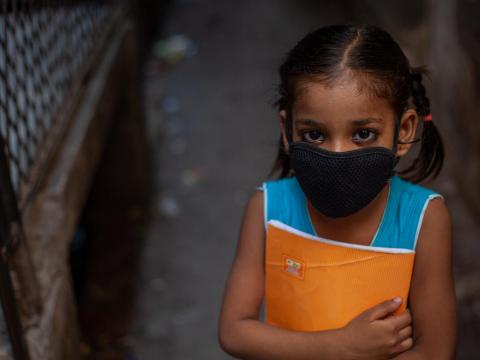
Vaccines save us from being condemned by history
By Jennifer Neelsen
When I was a little girl, instead of telling me fairy tales as bedtime stories, my father told me great stories from history. He made Greek mythology come to life, painted verbal pictures of emperors from Chinese history, and impressed upon me the seriousness of the origins and consequences of two World Wars. When I joined university, these early stories had grown into a fascination with human history. The narratives of our past shape our future, and if we pay attention, they can guide us towards sound decisions. As Spanish poet George Santayana so famously said: “Those who cannot remember the past are condemned to repeat it.”
Coupled with my interest in our collective stories was a strong desire to work in the public health and humanitarian industries. I wanted to take the lessons of the past and apply them to public health and humanitarian problems. As we enter the second year of this pandemic, we shouldn’t be in too much of rush to forget what has come before.
History is providing a lot of comfort to me right now. Put this pandemic in the context of other pandemics throughout history – as this fantastic graph so elegantly shows – and it’s clear that while this feels hard, and is awful, and so disruptive, and hard to see past, it will pass.
History tells us we have been through this before, and we will get through it, but it also tells us that pandemics can last a long time and it is down to us to make good choices about how we navigate through. How do we ensure the most vulnerable children, for example, do not suffer disproportionately – as they always seem to in a crisis? What can we learn from history as we support vulnerable communities, and respond to and advocate for their needs?
These are questions I and other colleagues grappled with, bound to our desks in our new completely virtual environment, earlier this year. I drew on history to model what we knew and what we could expect – this was going to last a long time, it was going to be very disruptive, it would overwhelm already stretched public health systems, and lockdowns and restrictions could ruin livelihoods and lives.
And so, we put lessons from history into practice as we built and launched and implemented World Vision’s largest-ever crisis response in our 70 years of operating. We focused on four priority areas:
- limiting the spread of COVID-19
- strengthening health systems
- supporting affected children
- collaborating and advocating for vulnerable children
Nine months on, we have reached more than 58.4 million people, including more than 25.8 million children, around the world. And now I am so excited that we are gearing up to play our part in the huge global vaccine effort.
Here again, history is our teacher and source of comfort. When science, medicine and society come together, we triumph over adversity. Childhood vaccinations are living proof of that. The WHO posits that: “Immunization currently prevents 2-3 million deaths every year from diseases like diphtheria, tetanus, pertussis, influenza and measles.” From smallpox in the 18th Century through to COVID-19, they have made such a difference in lives, life expectancy, and quality of life for countless millions of people.
When was the last time you met someone suffering from smallpox? Or dying from measles? Or confined to a wheelchair because of polio? And yet the year my mother was born, all three of these killed millions of children around the world every year.
Not anymore. And thanks to the awesome resilience and innovation of human beings, one day we will be able to say that about COVID-19. In the meantime, history also tells us how important it is that we don’t give up too soon. There is clear data from the 1918 influenza pandemic which shows that when we become complacent – when we gather in groups, stop wearing masks, become lax about hygiene – viruses sneak in through these gaps and new waves of infection, deaths and disruptions occur. There are shocking numbers of children whose lives and futures hang in the balance. Which is why in 2021 we have to double our efforts to try and mitigate the damage and impact of this pandemic on them.
What we do next is what will be remembered in the history books. And, when I tell my own children stories about the COVID-19 pandemic, I want to be able to tell them that I was privileged to be part of a team and an organisation that showed up when we were needed most. May you have a blessed and safe New Year.
Jennifer Neelsen is World Vision’s COVID-19 Global Response Director.